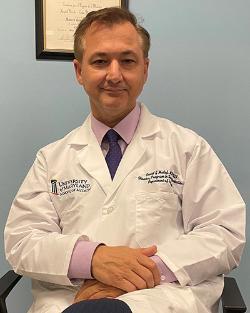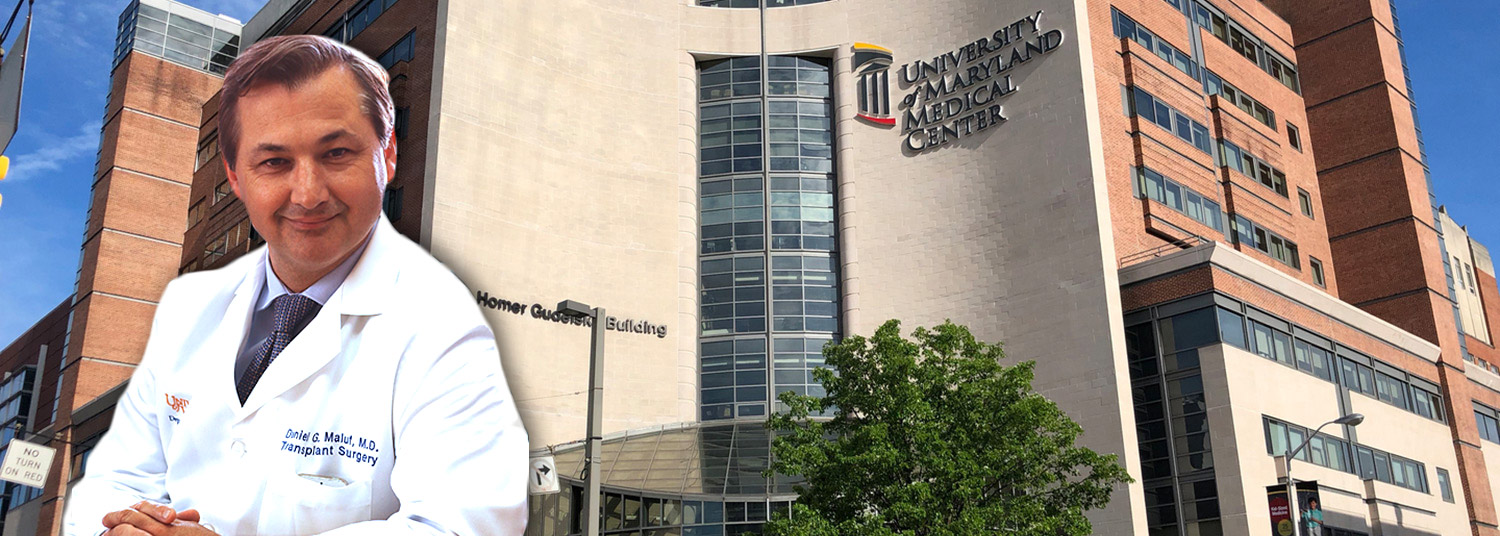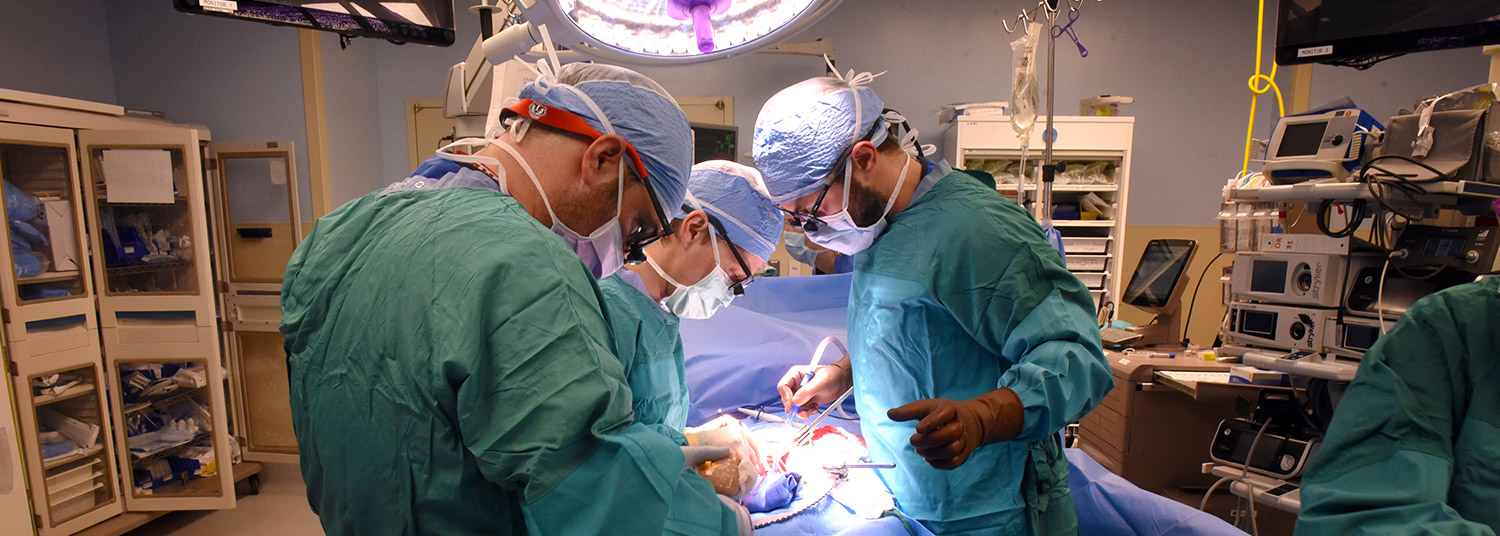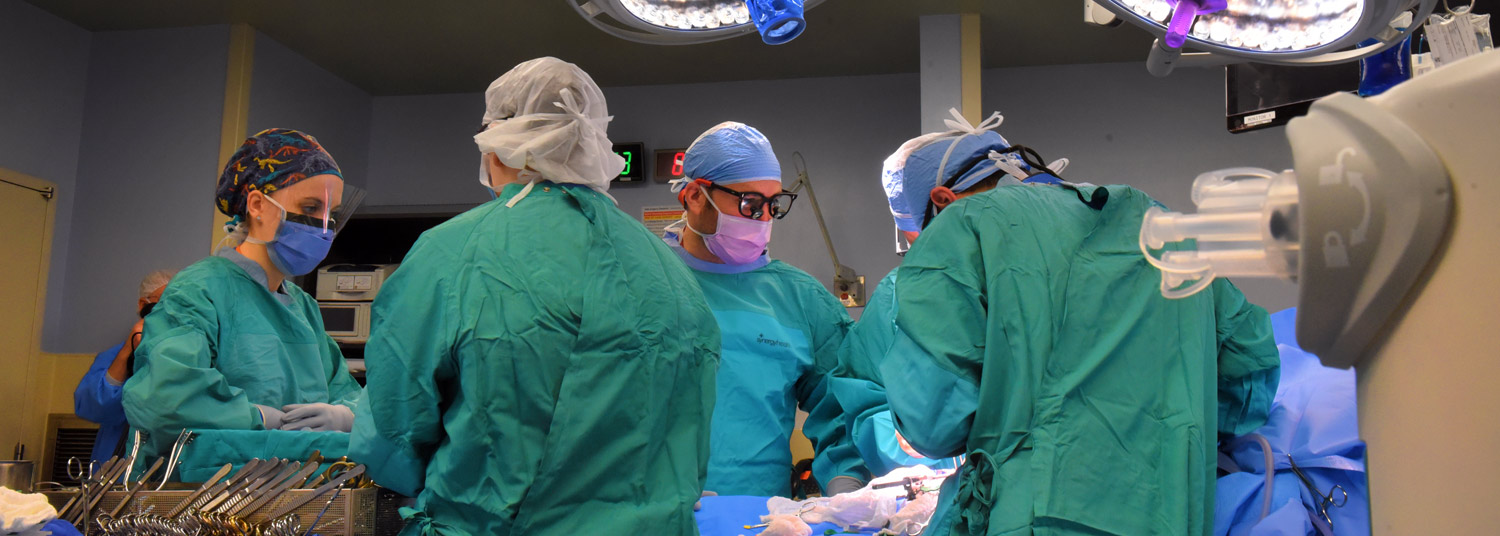Director

Daniel G. Maluf, MD
Professor of Surgery
Director, Program in Transplantation, Department of Surgery
The University of Maryland School of Medicine Program in Transplantation was created with the mission to coordinate scientific discoveries and clinical excellence, aiming to provide patients with groundbreaking treatment options. Our transplant physicians provide excellent clinical care while advancing the field through research and innovation.
Our clinical programs are among the best in the country, but we continue to improve patient care quality and outcomes after transplantation.
The University of Maryland School of Medicine Program in Transplantation has pioneered numerous advances in transplant surgery, including:
- Utilization of marginal grafts
- Living donor kidney transplantation
- Living donor liver transplantation
- Robotic laparoscopic kidney donation surgery
- Robotic renal transplantation
- Lung and heart transplantation
- Pancreas transplantation
Our program is one of the largest and most experienced on the East Coast, and we have a rich legacy of excellence in patient care, surgical outcomes, research, and training.
The Clinical Mission of the Program in Transplantation is to improve the health status of organ failure patients through multidisciplinary care teams that deliver superior outcomes while facilitating patient access to transplantation and enhancing their quality of life.
The Innovation Mission of the Program in Transplantation is to evaluate new care modalities, treatments, and basic science findings in transplantation by conducting innovative, large-scale clinical trials and translational research, which will advance the field. A related goal of the Program is to enhance the University of Maryland’s position as a center of distinction in the field of transplantation and by attracting sponsors to fund University of Maryland transplant initiatives in clinical practice, research, and education.
The Educational Mission of the Program in Transplantation is to provide a training environment conducive to delivering the organ failure practice experience necessary for graduate medical, nursing, and other University health science trainees.




